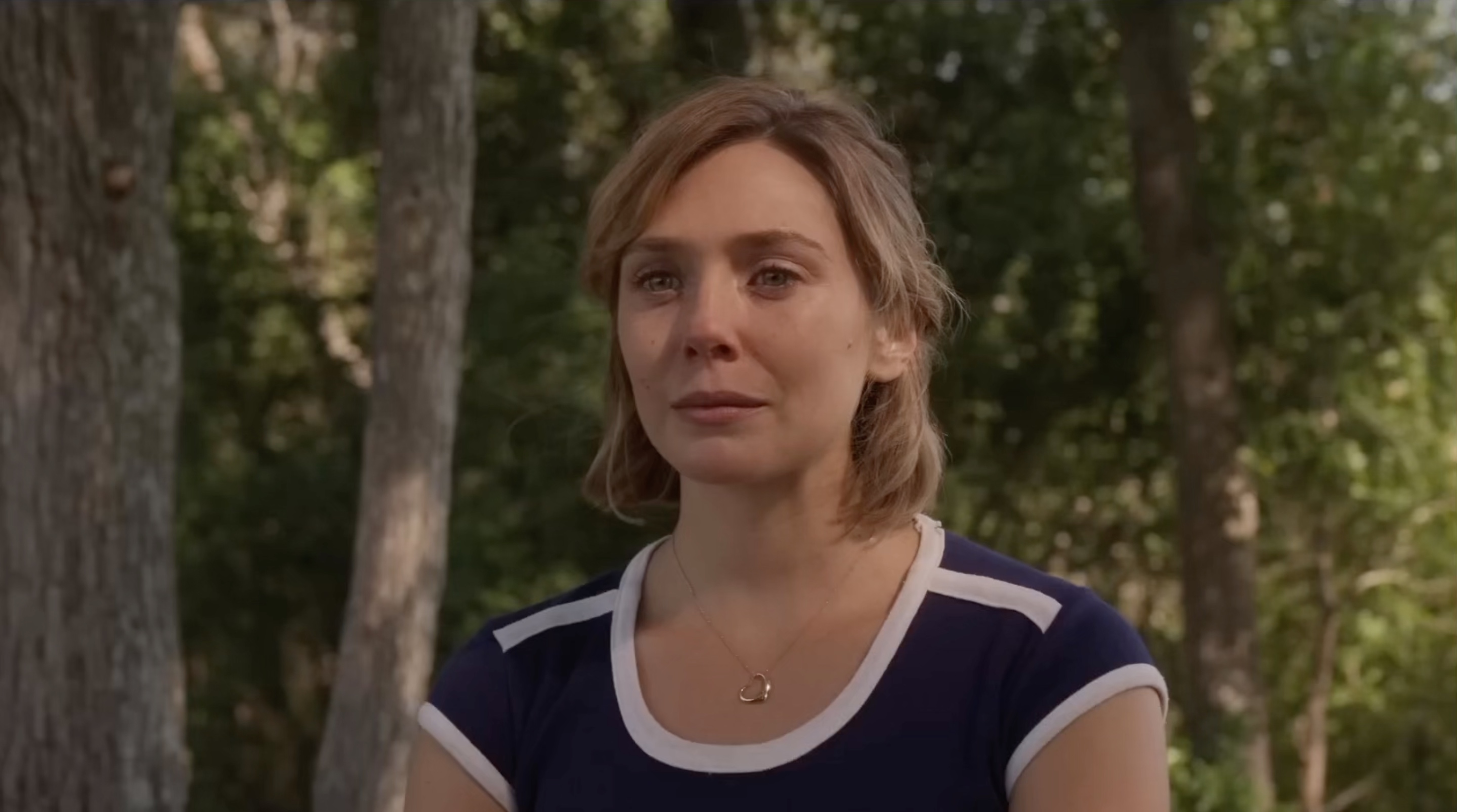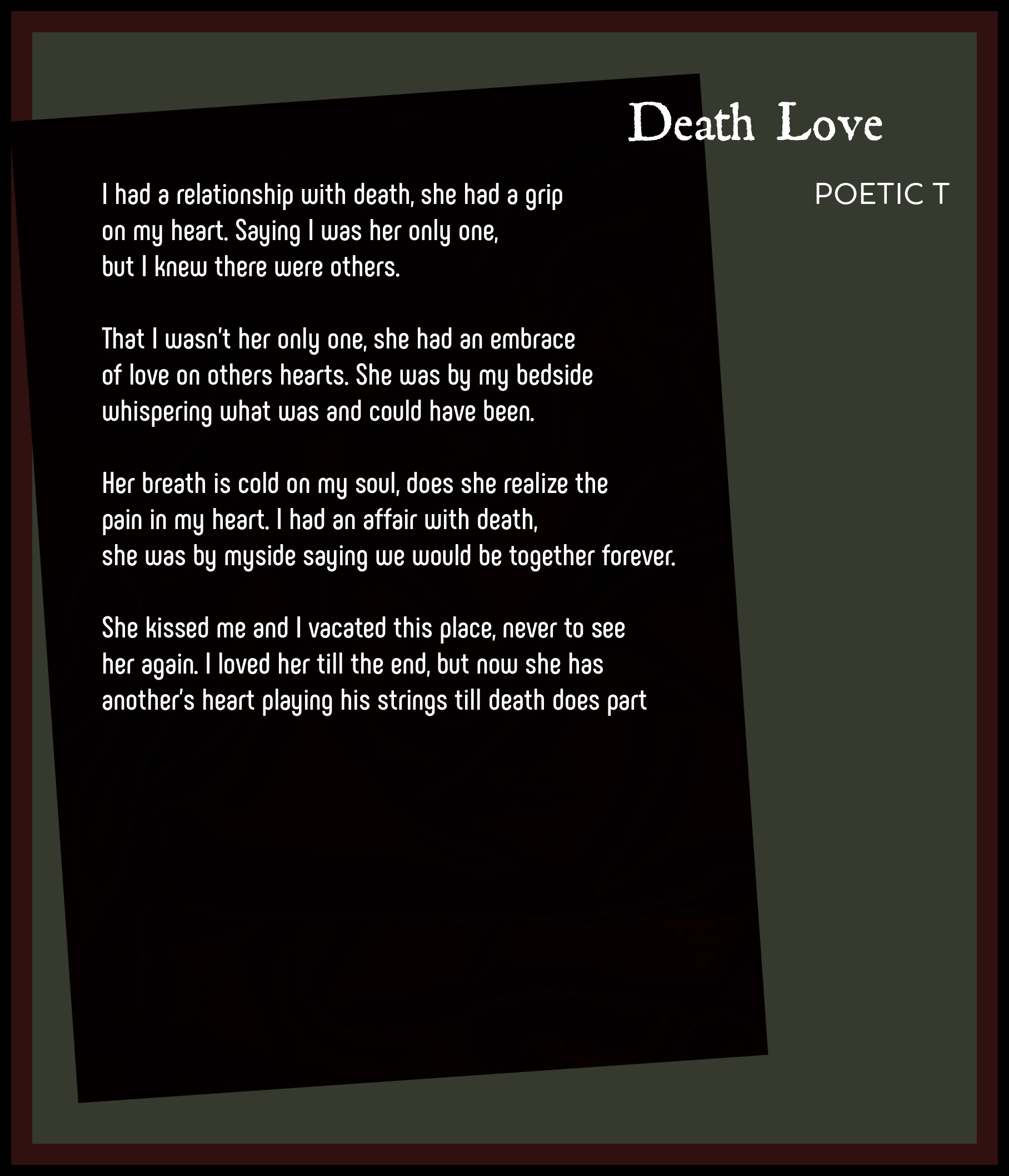Love & Death: A Journey Through The Unavoidable Realities Of Life
Love and death might sound like two extremes of human experience, but they're deeply intertwined. You can’t talk about one without brushing against the other. Think about it—love gives life meaning, while death reminds us that life is fleeting. It’s a paradox that’s as fascinating as it is unsettling. Whether you’re diving into philosophical musings or just trying to make sense of your own existence, understanding the relationship between love and death can change the way you live your life.
Now, before we dive headfirst into the deep end, let’s clear the air. Love and death aren’t just buzzwords for poets or moody teenagers writing in their journals. These concepts touch every single person on this planet, whether they realize it or not. From ancient myths to modern-day movies, these themes have been explored over and over again because they’re universal truths. They’re the constants that remind us what it means to be human.
So buckle up, because we’re about to take a wild ride through some heavy topics. By the end of this, you might not have all the answers—but hey, that’s part of the fun. Life isn’t about having all the answers, right? It’s about asking the right questions. And trust me, by the time you finish reading this, you’ll have more than enough food for thought.
- Tiffany Chen The Rising Star In The World Of Entertainment
- Allman Brothers The Untold Story Of A Rock N Roll Legend
Table of Contents
Love & Death: The Eternal Dance
A Brief History of Love and Death
Philosophical Perspectives on Love and Death
- Adrian Grenier The Ecowarrior Actor Transforming Hollywood And Beyond
- Aaron Hernandez Wife The Untold Story And Fascinating Facts
The Psychological Impact of Love and Loss
Spiritual Meaning of Love and Death
Cultural Differences in Perceiving Love and Death
Scientific Insights on Grief and Love
Love and Death in the Modern World
Practical Ways to Embrace Both
Love & Death: The Eternal Dance
Let’s face it—love and death are like two sides of the same coin. One brings warmth, connection, and purpose, while the other looms in the background, whispering reminders of our mortality. But here’s the kicker: without death, would love even matter? Think about it. If we were immortal, would we cherish relationships the same way? Probably not. Death gives urgency to love, and love makes death bearable—or at least more meaningful.
In a world where distractions are everywhere, it’s easy to lose sight of these big ideas. We get caught up in the hustle and bustle of daily life, chasing deadlines, scrolling social media, and forgetting what truly matters. But every now and then, something happens—a breakup, a loss, or a moment of pure joy—that forces us to pause and reflect. And when we do, we start to see how love and death shape everything we do.
This isn’t just abstract philosophy, either. Scientists, psychologists, and spiritual leaders have been studying these concepts for centuries. There’s a reason why they keep coming back to the same themes. Love and death are the ultimate teachers, offering lessons about resilience, vulnerability, and the human condition. So, how exactly do they fit together? Let’s break it down.
A Brief History of Love and Death
To understand the modern perspective on love and death, it helps to look back at history. Ancient civilizations had fascinating takes on both concepts. The Egyptians believed in an afterlife where love continued beyond death, while the Greeks saw Eros as a powerful force driving human desires. Even religions like Hinduism and Buddhism incorporate ideas of love and death into their core teachings.
Key Figures Who Shaped Our Understanding
Here’s a quick rundown of some influential thinkers who’ve shaped the way we view love and death:
- Sigmund Freud: The father of psychoanalysis famously argued that humans are driven by two instincts—eros (love) and thanatos (death). He believed these forces constantly battle within us, shaping our behavior.
- Friedrich Nietzsche: This German philosopher explored the concept of amor fati, or "love of fate." He encouraged people to embrace both the joys and sorrows of life, seeing them as inseparable.
- Rumi: The Sufi poet wrote extensively about the divine love that transcends earthly attachments. For him, death was simply a transition to a higher form of existence.
Of course, there are countless others who’ve contributed to this conversation. But what’s clear is that love and death have always been central to human thought. They’re the questions that keep us searching for meaning, long after the answers elude us.
Philosophical Perspectives on Love and Death
Philosophy has a lot to say about love and death—and for good reason. These concepts challenge us to think deeply about what it means to exist. Existentialists, for example, argue that death gives life its significance. Without the knowledge of our eventual demise, we wouldn’t feel the urgency to create, connect, and love.
On the other hand, existential dread can also lead to fear and anxiety. Many people struggle with the idea of impermanence, wondering how they can find meaning in a finite existence. This is where love comes in. Love offers a sense of continuity, a way to leave something behind even after we’re gone. It’s no wonder that so many cultures emphasize the importance of family, community, and legacy.
Key Questions to Consider
As you reflect on the philosophical implications of love and death, here are a few questions to ponder:
- Is love stronger than death, or does death ultimately triumph?
- Can we truly love without the awareness of death?
- How does the fear of death impact our ability to love fully?
These aren’t easy questions, but wrestling with them can lead to profound insights. Philosophy invites us to confront the uncomfortable truths of life, and in doing so, we often discover unexpected beauty.
The Psychological Impact of Love and Loss
Psychologically speaking, love and death go hand in hand. When someone we love passes away, the grief we feel is a direct reflection of the bond we shared. This is why losing a loved one can be so devastating—it’s not just about the person being gone; it’s about the void they leave behind.
Grief is a complex process that affects everyone differently. Some people experience intense sadness, while others may feel anger, guilt, or even relief. What’s important to remember is that grief is a normal response to loss. It’s how we process the reality of death and begin to heal.
Stages of Grief According to Kübler-Ross
Dr. Elisabeth Kübler-Ross identified five stages of grief that many people go through:
- Denial: "This can’t be happening to me."
- Anger: "Why is this happening? Who’s to blame?"
- Bargaining: "Make this not happen, and I’ll do anything."
- Depression: "I’m too sad to do anything."
- Acceptance: "I’m at peace with what happened."
Keep in mind that these stages don’t always happen in a linear order. People may revisit certain stages or skip others entirely. What matters most is allowing yourself to feel whatever emotions come up without judgment.
Spiritual Meaning of Love and Death
For many, love and death hold deep spiritual significance. Different religions and belief systems offer unique perspectives on these topics. For instance, Christianity views love as a divine gift and death as a passage to eternal life. Meanwhile, Buddhism teaches that attachment to both love and death leads to suffering, urging practitioners to cultivate detachment and compassion.
Spirituality encourages us to look beyond the physical realm and seek connection with something greater than ourselves. Whether that’s God, the universe, or simply the collective consciousness of humanity, the goal is to find peace amidst the chaos of life.
Practices to Foster Spiritual Growth
Here are a few practices that can help you deepen your understanding of love and death:
- Meditation: Spend quiet time reflecting on your thoughts and feelings.
- Journaling: Write about your experiences and insights.
- Service: Help others as a way to honor those who’ve passed.
Ultimately, spirituality reminds us that love and death are part of a larger story—one that extends far beyond our individual lives.
Love and Death in Literature
Throughout history, authors have used literature to explore the complexities of love and death. From Shakespeare’s tragic romances to Tolstoy’s meditations on mortality, these themes have inspired countless works of art. Books like Romeo and Juliet and War and Peace show how love and death can coexist, sometimes in heartbreaking ways.
Modern literature continues this tradition, tackling issues like terminal illness, aging, and the search for meaning. Novels like The Fault in Our Stars by John Green and Atonement by Ian McEwan delve into the intricacies of love and loss, resonating with readers across generations.
Why Literature Matters
Reading about love and death in literature allows us to explore these themes safely, from the comfort of our own homes. It gives us permission to feel emotions we might otherwise suppress, helping us process our own experiences. Plus, it’s just plain entertaining!
Cultural Differences in Perceiving Love and Death
Culture plays a huge role in how we perceive love and death. In some societies, death is celebrated as a natural part of life, while in others, it’s feared and avoided. Similarly, expressions of love vary widely depending on cultural norms and traditions.
In Mexico, for example, Día de los Muertos (Day of the Dead) honors deceased loved ones with vibrant parades and altars filled with offerings. Meanwhile, in Japan, the concept of “mono no aware” reflects an appreciation for the impermanence of life, encouraging people to cherish fleeting moments of beauty.
Cultural Practices Worth Exploring
If you’re curious about how different cultures approach love and death, here are a few traditions to check out:
- Skull Paintings in India: Vibrant art forms celebrating life after death.
- Funeral Rites in Ghana: Extravagant ceremonies showcasing respect for ancestors.
- Valentine’s Day in South Korea: A month-long celebration of love.
Learning about these practices can broaden your perspective and foster greater empathy for others.
Scientific Insights on Grief and Love
Science offers fascinating insights into the biological and neurological processes behind love and grief. Studies show that romantic love activates the same brain regions associated with addiction, explaining why falling in love feels so intense. Similarly, grief triggers changes in the brain that can affect mood, memory, and decision-making.
Research also highlights the importance of social support during times of loss. People who have strong networks of friends and family tend to cope better with grief, underscoring the power of community in times of need.
Key Findings from Neuroscience
Here are a few interesting facts about the science of love and grief:
- Love releases oxytocin, often referred to as the “bonding hormone.”
- Grief can lead to physical symptoms like fatigue, insomnia, and appetite changes.
- Practicing gratitude can help mitigate the effects of grief.
Understanding the science behind these emotions can empower us to take better care of ourselves and others.
Love and Death in the Modern World
In today’s fast-paced world, love and death take on new dimensions. Social media has changed the way we share and mourn, allowing us to connect with others in ways previous generations couldn’t imagine. At the same time, the digital age brings challenges, such as cyberbullying and online memorialization.
Technology also offers tools for preserving memories, from creating digital tributes to recording voice messages for future generations. While these innovations can



Detail Author:
- Name : Mrs. Aurelia Mosciski I
- Username : ewald97
- Email : lexi.ward@yahoo.com
- Birthdate : 1979-02-12
- Address : 55766 Senger Port Apt. 926 New Rosalee, NJ 07793
- Phone : (623) 404-4939
- Company : Swift PLC
- Job : Film Laboratory Technician
- Bio : Aperiam et aliquid aliquam ullam laudantium eos. Non aut quaerat nihil est et. Corporis incidunt blanditiis dolorem autem eaque. Sunt et dolores laboriosam ea.
Socials
tiktok:
- url : https://tiktok.com/@lockmanl
- username : lockmanl
- bio : Et accusamus et facere quos illo beatae sed ut. Sed labore quam dolor maiores.
- followers : 2222
- following : 2426
facebook:
- url : https://facebook.com/lockman2013
- username : lockman2013
- bio : Enim est et est maiores cumque sit. Et sunt inventore sit qui ut modi et.
- followers : 5498
- following : 1317
linkedin:
- url : https://linkedin.com/in/lockman2015
- username : lockman2015
- bio : Dolore accusamus quos blanditiis ut ut.
- followers : 965
- following : 375
instagram:
- url : https://instagram.com/leora5544
- username : leora5544
- bio : Qui architecto minima id dolorem maiores. Id error harum aperiam.
- followers : 3518
- following : 925